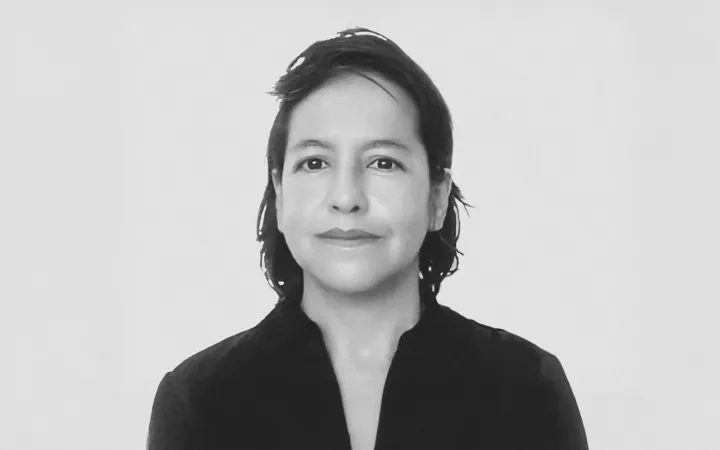
Por Raquel López-Portillo Maltos

El día de ayer, imágenes de la toma del canal TC Televisión de Ecuador, el secuestro de estudiantes y personal de la Universidad de Guayaquil y la transmisión en vivo del asesinato de tres guías penitenciaros por parte de integrantes del crimen organizado, causaron gran conmoción. Si bien, el detonante de esta situación en particular fue la declaratoria de un estado de excepción por la fuga del líder del narcotráfico Adolfo “Fito” Macías de una cárcel de Guayaquil, toda crisis de violencia tiene una raíz más honda. La que toca a Ecuador se remonta años atrás y se conecta con varios vecinos de la región.
La posición geográfica de Ecuador coloca a este territorio en un jaque geopolítico, al ser vecino de dos de los principales productores de droga en la región: Colombia y Perú. Si bien esto le convirtió en una ruta inescapable de tránsito de drogas, fue en el 2010 cuando esta tendencia se revirtió, al convertirse también en un importante centro de producción y exportación. Desde entonces, Guayas y Esmeraldas han sido las provincias más afectadas por el crimen organizado. Guayaquil se ha mantenido como uno de los puntos críticos, ya que este es el puerto desde donde se exporta la droga, principalmente hacia Estados Unidos y Europa.
Aunado a ello, el clima social se ha recrudecido con la presión inflacionaria, el alza de precios de combustible y fertilizantes, la marginación de poblaciones indígenas y el descontento de una sociedad en donde el 39 por ciento padece de pobreza multidimensional. En los últimos años, han habido varias gotas que han derramado el vaso del orden democrático. Si bien hay distintos matices en las problemáticas domésticas que aquejan a Ecuador, es posible afirmar que una mayoría de las principales crisis que se han detonado en los últimos años derivan del nulo control que tiene el gobierno sobre el sistema penitenciario. Las células criminales tienen completo control de los pabellones, desde donde gestionan la logística de sus operaciones de tráfico y donde detonan motines y riñas en respuesta a operativos de seguridad.
Bajo la administración del ex presidente Rafael Correa se deterioraron las condiciones de seguridad al dar tregua a ciertos grupos, reducir la cooperación con Estados Unidos y Colombia y desmantelar las unidades de inteligencia del país. En el gobierno de Lenín Moreno la crisis carcelaria se agravó, concluyendo su administración con una tasa de 21 muertes violentas por cada 10,000 presos debido a los motines y disputas entre grupos criminales. Finalmente, la administración de Guillermo Lasso recurrió al uso del estado de excepción en numerosas ocasiones en un intento de controlar la situación, sin resultados favorables. En 2022, tras un operativo para “ordenar cárceles” se desató una ola de ataques violentos graves. Su periodo de gobierno concluyó con el lamentable asesinato del candidato presidencial Fernando Villavicencio a manos del crimen organizado.
Esta situación toca a México por las alianzas económicas y operativas que tienen las células ecuatorianas, varias de las cuales el presidente Daniel Noboa denominó como terroristas, con cárteles mexicanos. Pero toca también al país por el manejo de la política de seguridad, pues la realidad es que por más impactantes que hayan sido las imágenes que circularon de la jornada de violencia en Ecuador, acciones de esta misma magnitud se han convertido en el pan de cada día en México también. Aunque se haya normalizado, no hay que olvidar que vivimos en un país en donde el crimen organizado asesina, secuestra, quema, extorsiona, amenaza y se aterroriza por doquier. Por lo pronto, en Ecuador se declaró inmediatamente un conflicto armado interno, lo cual autoriza a las Fuerzas Armadas de Ecuador a realizar las operaciones necesarias para “neutralizar” a estos grupos, con los riesgos y consecuencias que ello implica. En México, al privilegiar los abrazos por encima de los balazos, no contamos con una categorización que reconozca siquiera la magnitud del problema.
Crisis como la que está atravesando Ecuador hacen que se voltee a ver con anhelo las políticas de seguridad como las implementadas por Nayib Bukele en El Salvador, en donde parece haber una disposición social de intercambiar los derechos humanos por seguridad. Aunque no lo ha dicho explícitamente, las últimas declaraciones de Noboa apuntan a que virará hacia esa senda. Hace apenas unos días, anunció la construcción de dos mega cárceles al estilo de las de El Salvador. En sus palabras, “las leyes que tenemos no son suficientes para vivir en paz. Nosotros no vamos a negociar con terroristas”. Los próximos días definirán la gobernabilidad con la que inicia su mandato y, en gran medida, el futuro político y social de Ecuador. En un país en donde el terrorismo criminal ha declarado la guerra al Estado, la forma en la que se resuelva la crisis debe fungir también como un foco de atención para el resto de América Latina.
*Raquel López-Portillo Maltos es Maestra en Gobierno y Políticas Públicas por la Universidad Panamericana, Licenciada en Derechos Humanos y Gestión de Paz por la Universidad del Claustro de Sor Juana y especialista en Análisis Político, Democracia y Elecciones por el Centro de Investigación y Docencia Económicas (CIDE). Se ha desarrollado en los sectores público, privado y de la sociedad civil en temas de análisis internacional, seguridad, derechos humanos e igualdad de género. Actualmente es Secretaria Ejecutiva del Programa de Jóvenes del Consejo Mexicano de Asuntos Internacionales y columnista en el diario El Universal. Colabora como analista internacional en distintos medios de comunicación.
Las opiniones expresadas son responsabilidad de sus autoras y son absolutamente independientes a la postura y línea editorial de Opinión 51.
Más de 150 opiniones a través de 100 columnistas te esperan por menos de un libro al mes.






Comments ()